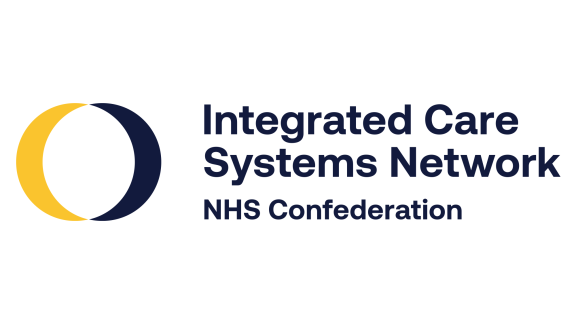ICS Network Conference 2023

This was our annual in-person conference for members of the NHS Confederation’s ICS Network, intended for all senior leaders in ICSs: ICB CEOs, ICB Chairs, ICP Chairs, executive teams in ICBs, and non-executive directors.
The day - beginning with a breakfast session and closing with a drinks reception - focused on delivering the four core purposes of ICSs and featured engaging keynote speakers, stimulating breakout sessions and plenty of networking opportunities and exhibitions.
Explore the programme
8-9am – Breakfast session - Prevention and early intervention to reduce system [winter] pressures and improve outcomes
This session will provide three examples of systems who are addressing their challenges:
- Primary care focus on high-risk asthma patients
- The role a primary care alliance can play
- Improving access to primary care dental services
Start the day by sharing best practice and ideas for new and integrated ways of working.
Chair: Simon Whitehouse, Chief Executive, Shropshire, Telford and Wrekin ICB. Speakers: Bruce Rumsby, Senior General Practice Resilience Manager, Great Yarmouth and Waveney Locality; Dr David McConnell, GP Partner & Clinical Director – Great Yarmouth & Northern Villages PCN; Ankish Patel, Chief Pharmacist & Head of PCN Workforce at Nottingham City General Practice Alliance; Jess Bendon, Primary Care Contracts Business Partner Dental, Cambridgeshire and Peterborough ICS; Charlene Andrews, Head of City Wide Services, Nottingham City General Practice Alliance.
In partnership with IQVIA

8:30-9:15am – Registration and exhibition
9:15-9:20am – Chair’s welcome
Cllr Tim Oliver
9:20-10:05am – ICS role in the cost-of-living crisis and broader political debate
The cost-of-living crisis is a health crisis: lack of heating and malnutrition lead to worsening mental and physical health. 11 million adults in the UK are struggling to pay their bill (3 million more than at the same time last year), and in March one-in-five people reported skipping meals or eating less, and during last Winter half of households surveyed by the ONS reported difficulties in heating their home.
To tackle the illnesses caused by the rising cost-of-living, ICSs will increasingly need to look outside the hospital and prevent these from occurring in the first place, but this can mean moving onto more inherently political territory. This session will consider the impact of the cost of living on health and well-being, what systems can to help address such wider determinants of health and how ICSs can best navigate a more political world.
Speakers: Torsten Bell, Director, Resolution Foundation; Matthew Taylor, Chief Executive, NHS Confederation; Stephanie Elsy, Chiar, Bath, Swindon and Wiltshire ICB
10:05-10:50am – Thinking differently: broader perspectives on collaboration to achieve transformation
ICSs have the opportunity to transform health and care by bringing together a diverse cast of organisations and players that can impact the health and wellbeing of our populations for the better. This session will explore some different ways in which ICSs can go further and faster to support local people and maximise the wider economy.
Speakers will share their experiences of working in partnership including the how they overcame barriers, the key enablers to their success and the impact of their work on local citizens.
Chair: Sarah Pickup, Acting Chief Executive, LGA Speakers: Liz Parsons, Head of Public Health for Social Housing and the Built Environment, Milton Keynes Council; Kathy McLean, Chair, Nottingham and Nottinghamshire ICS; Jenni Douglas-Todd, Chair, Dorset ICS
10:50-11.10am – Exhibition and networking
11.10-11:45am - Keynote - Improving health and care at scale
Professor Sir Chris Ham, University of Birmingham
Chair: Matthew Taylor, Chief Executive, NHS Confederation
11:55am-12:45pm – Breakout sessions
Delegation and collaboration - the developing landscape and opportunities for specialised commissioning
This session will discuss the developing policy landscape and opportunities presented by the delegation of specialised commissioning, including the different degrees of provider collaborations.
It will be an opportunity to hear how systems are making progress, discuss what has worked well and what some of the building blocks for greater integration might be as systems forge their own paths and develop models that work best for their communities.
Chair: Lauren Hughes, Director, Strategy, Transformation and Quality, National Specialised Commissioning Directorate, NHS England Speakers: Gerard Hanratty, Partner, Browne Jacobson; Fiona Edwards, Chief Executive, Frimley ICS; Lucie Waters, Director, South London Office of Specialised Services
In partnership with Brown Jacobson

Defining, mapping and tracking preventative spend - where do we start?
This session will be an opportunity to discuss how ICSs can define, map, track and measure preventative spend. It will be an opportunity to hear about the work being started by the NHS Confederation on the (MEPS) framework, hear from leaders who have started to map their prevention spend and discuss the variety of ways prevention spend can be defined and baselined.
Chair: Lena Samuels, Chair, Hampshire and the Isle of White ICB. Speakers: Sarah Price, Director of Public Health, NHSE; Michele Mcmanus, Director of Transformation & Place Development, Walsall Together; Siobhan Farmer, Director of Public Health, Gloucester County Council; John Boswell, Professor in Public Policy, University of Southampton
Primary care sustainability and the role of ICBs
Primary Care Networks (PCNs) are foundational to integrated care systems, being described as the ‘building blocks of ICSs’, the mechanism for improving the interface between primary care and other parts of the health and care system and the vehicle for tackling neighbourhood health inequalities. Yet our recent ‘State of ICSs’ report found that ICS leaders do not think PCNs have the resourcing or maturity to deliver the ambitions outlined in their strategies.
This panel discussion will explore the factors that have contributed to this situation, as well as existing and emerging approaches to support both the sustainability and resilience of general practice and primary care.
Key questions include:
- Are nationally-set PCN services a hindrance to integration?
- How can the System Development Fund (SDF) be optimised to support primary care?
- How can ICBs help develop primary care infrastructure that supports sustainability and transformation?
- What is the role of primary care provider collaboratives in supporting primary care sustainability? How do they differ from PCNs or federations?
- How can ICBs support the relationship between general practice and wider primary care (community pharmacy, dentistry, optometry) to ensure a more effective and efficient delivery model?
Chair: Chris Clayton, Chief Executive, NHS Derby and Derbyshire Integrated Care Board Speakers: Dr Frank O’Kelly, GP Partner member, Devon ICB; Professor Aruna Garcea, GP and Medical Advisor for Networks and Partnerships at LLR (Leics, Leics City & Rutland) Patient Care Locally CIC and Chair, NHS Confederation Primary Care Network; Dr Sunaina Khanna, GP and Medical Director for Integration, Birmingham and Solihull ICS.
Community engagement with populations at risk of poor health outcomes in cardiovascular disease
Engaging communities at risk of poor health outcomes in Cardiovascular Disease (CVD) is crucial. In England, 6.4 million people live with heart or circulatory diseases, and its estimated 375 people lose their lives daily to CVD. Despite its preventable nature, CVD contributes to one in four deaths in England.
Integrated Care Systems (ICSs) offer a unique opportunity for systemic collaboration to enhance service access and health outcomes for high-risk populations, alleviating local inequalities and reducing service demands. CVD stands out as a major driver of health inequalities, constituting one-fifth of the life expectancy gap between the most and least deprived communities.
This session will delve into the dynamics of a community-led approach towards addressing CVD inequalities and explore the pivotal role ICSs can play in improving access and health outcomes for the most marginalized communities.
Panellists will discuss:
- The activation of communities in enhancing awareness of CVD risks, signs, and symptoms.
- The pivotal role of partnerships and collaboration, bringing together diverse stakeholders from communities, the NHS, local government, private sector, and voluntary, community, and social enterprise (VCSE) sectors.
- Strategies for system leaders to accelerate progress in reducing CVD inequalities through this community-centric approach.
Chair: Cedi Frederick, Chair, Kent and Medway ICS. Speakers: Georgina Fihosy, Strategic Accounts Manager, Novartis, South East London; Dr Sy Ganesaratnam, GP Clinical Director for East Merton PCN; Dr Nandi Simpson, Director, Implementation, NHS Race and Health Observatory.
In partnership with Novartis

12:45-1:45pm – Lunch and exhibition
1:45-2:30pm - Welcome back
Chair: Fiona Edwards, Chief Executive Frimley ICB
Leadership and inclusion – the role of ICS leadership
In this session we will explore leadership and inclusion and the role of ICS leaders. There is still much to do to create a more diverse leadership in the NHS and we need tangible action and change to make this happen. In addition, leaders seek to tackle the enduring health inequalities communities face.
In this session we will cover how tools such as Patient, Carer, Race Equality Framework (PCREF) can help, the work of the Race and Health Observatory plus the unique challenges of inclusive leadership at system level. How can today’s leaders drive inclusivity and what actions can they take to improve outcomes for communities experiencing inequalities?
Chair: Priya Singh, Chair, Frimley ICB. Speakers: Dr Jacqui Dyer MBE, Joint Strategic Lead for PCREF, South London and Maudsley NHS Foundation Trust (SLAM); Dr Habib Naqvi, Chief Executive, NHS Race and Health Observatory; Zina Etheridge, Chief Executive, North East London ICB; Zoe Reed, Joint Strategic Lead for PCREF at SLAM
2:40-3:30pm – Breakout sessions
Improving children and young people’s mental health service provision
Post pandemic we have seen an increased need for children and young people’s mental health services but many areas are struggling to meet this demand. This session will share some example of innovative service commissioning and delivery models for eating disorder support, and for young people as they transition into adult services.
Speakers: Sean Duggan, Chief Executive, NHS Confederation's Mental Health Network; Cassandra Harrison, Chief Executive, Youth Access; Jess Griffiths, FREED National Co-Lead, SLAM; Suzanne Hare, Cambridgeshire and Peterborough NHS Foundation Trust, YOUnited; Gemma Balnaves, Ormiston Families, YOUnited; Carolin Reisert, YOUnited.
What Next for Integrated Care Partnerships?
Following the development of Integrated Care Partnerships’ integrated care strategies, system leaders have been asking the question: what next for our ICP? NHS Confederation and the LGA has conducted research to best understand what leaders have planned for their ICPs and how they see them driving transformation over the next few years.
Chair: David Fothergill, Deputy Chair of LGA and Chair LGA Community and Wellbeing Board. Speakers: Susannah Howard, Director of the ICP, Suffolk and North East Essex; Cllr Louise Richardson, Co-Chair Leicester, Leicestershire and Rutland ICP; Ian Perrin, Senior Policy Advisor, NHS Confederation
Getting a good return on your investment: impact in action
ICSs have been created and tasked with fulfilling four core purposes, but this can be challenging in a financially constrained environment. This session will explore the emerging evidence on how systems can use their budgets to achieve impact and the best return on investment.
This will include looking at NHS Confederation research on the contribution of the health and care system to local socio-economic development and how systems are using their budgets to tackle health inequalities. It will also explore how systems move from looking at cost to achieving value and how to maximise allocative efficiency to that end.
Chair: Stephanie Elsy, Chair, Bath, Swindon and Wilstshire ICB. Speakers: Michael Wood, Head of Economic Partnerships, NHS Confederation; Dr Penny Dash, Chair, NW London ICB; Prof Mark Gamsu, Chair, Citizens Advice Sheffield
The journey towards preventative models of care – How connected data and Integrated Neighbourhood Teams are delivering targeted prevention in Birmingham
Delivering proactive, preventative health and care services at scale requires complex, system-wide approaches to workforce, data, and estates. The Birmingham and Solihull Integrated Care System is finding new ways to prevent and manage escalating health and care needs within the population.
The first phase of this work has brought together local authority, primary and secondary care data to identify Birmingham’s specific population needs, indicating that the top 10% of users make up 71% of demand on services. Initial case reviews suggest that 45% of these users are suitable for targeted preventative support.
The second phase of this work involved piloting new ways of working to deliver targeted, preventative interventions through new Integrated Neighbourhood Teams. This is being evaluated and iterated before informing the design of a future operating model and being scaled to primary care networks across the ICS. The work has the potential to help reduce pressure on stretched primary, secondary and social care services and also enable significant numbers of people to live longer, healthier, happier and more independent lives.
In this session, leaders of this innovative programme of work will describe the key findings so far and share details of how they are working together as a system to achieve their vision.
Chair: Ruth Rankine, Director of Primary Care, NHS Confederation. Speakers: Chris Holt, Chief Transformation Officer, Birmingham Community Healthcare NHS Foundation Trust; Paul Sherriff, Chief Officer for Partnerships and Integration, NHS Birmingham and Solihull Integrated Care Board; Dr Subeena Suleman, Partner member, NHS Birmingham and Solihull Integrated Care Board; Andy Lumb, Director, Newton Europe.
In partnership with Newton

3:30-3:50pm – Exhibition and networking
3:50-4:35pm - Meeting the needs of future generations – the changing relationship with citizens and communities
This session will explore the health system’s changing relationship with citizens and communities. Exploring the prospect of a new social contract between citizens and the NHS and the role of ICS’s in supporting a changing relationship. It will be an opportunity to hear the aspirations from a range of leadership perspectives, whether they think we’re on the right track and what could ICSs be doing now to better engage with and prepare for future generations?
Chair: Jacob Lant, Chief Executive, National Voices. Speakers: Haris Sultan, NHS National NExT Director Programme and member West Yorkshire ICB; Oliver Coppard, Mayor, South Yorkshire; Leanora Volpe, South East London ICS; Marsha McAdam, Service User Representative and Vice Chair, NHS Confederation's Mental Health Network.
4:35-4:45pm – Reflections and close
Sarah Walter, Director, NHS Confederation's ICS Network
Fiona Edwards, Chief Executive, Frimley ICB
4:45-5:30pm – Drinks reception, exhibition and networking
In partnership with GE Healthcare




